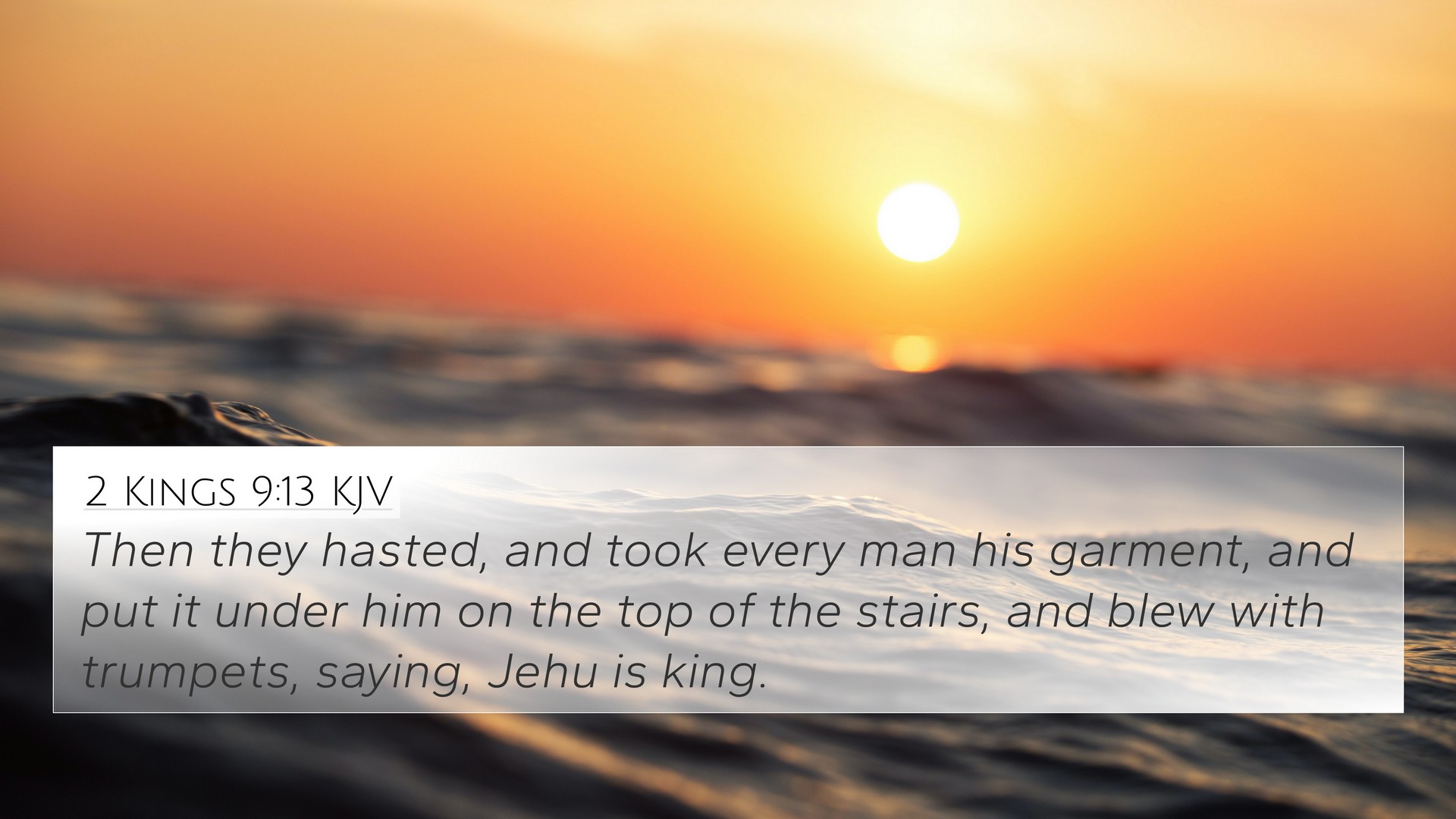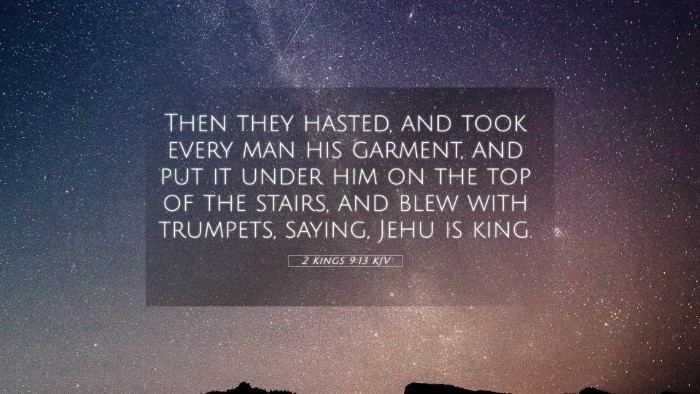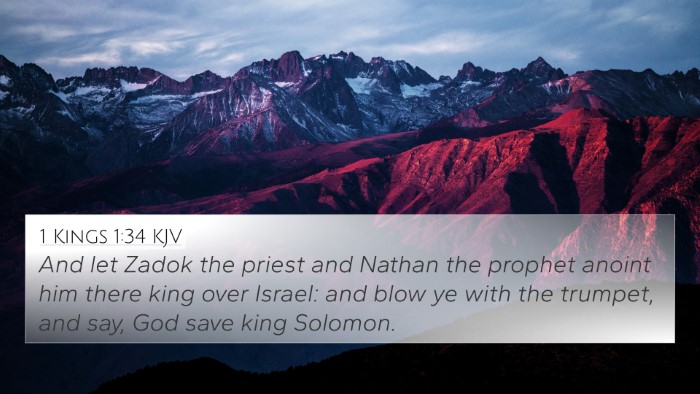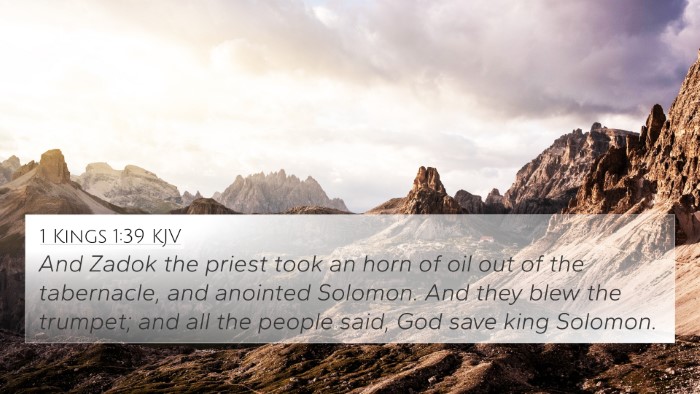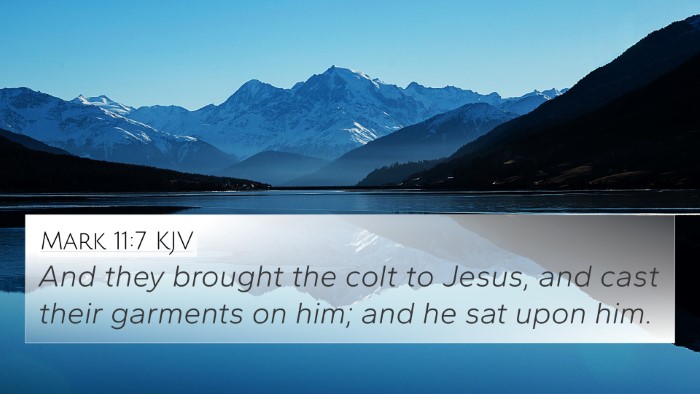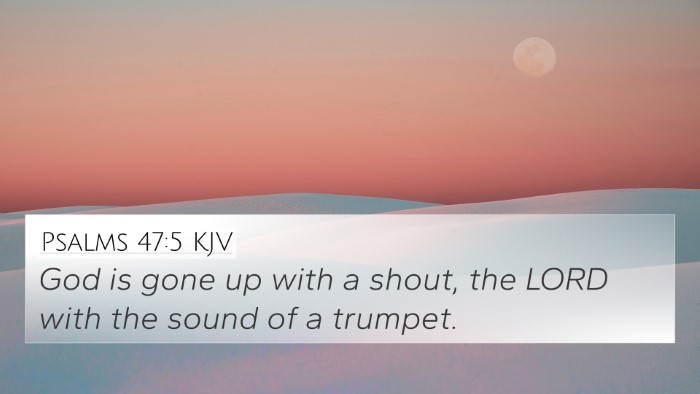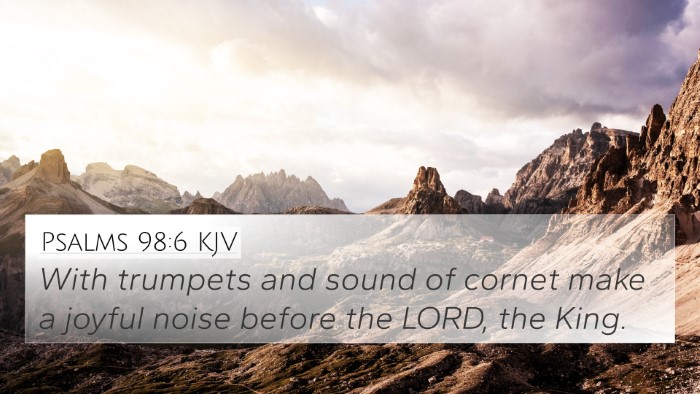Understanding 2 Kings 9:13
2 Kings 9:13 states, "Then they hurried, and every man of them took his garment, and put it under him on the top of the stairs, and blew with trumpets, saying, Jehu is king." This verse marks a significant event in the anointing of Jehu as king over Israel, capturing the decisive moment in Israel's tumultuous history.
Contextual Background
This passage appears during a pivotal period when Jehu, anointed by a prophet, fulfills God's command to bring judgment upon the house of Ahab as a part of God's sovereign plan.
Interpretative Analysis
-
Divine Appointment:
Matthew Henry emphasizes the sovereignty of God's choice in leaders, noting how Jehu’s anointing represents divine providence and his role in executing divine judgment on the house of Ahab for their idolatry (1 Kings 16:30-33).
-
Symbols of Kingship:
Albert Barnes points out the cultural significance of the act of laying garments under Jehu. It symbolizes honor and the recognition of his authority as king, reminiscent of similar practices seen in other historical contexts (2 Kings 11:12).
-
Act of Rebellion:
Adam Clarke notes that this act is not merely ceremonial but represents a rebellion against the current rule and a call to action, as the people rallied around Jehu with trumpets—a sign of declaring allegiance to him (1 Kings 19:16).
Thematic Connections
2 Kings 9:13 has several connections to broader Biblical themes, particularly regarding leadership, divine judgment, and the prophetic calling:
Related Cross-References
- 1 Kings 19:16: God's command to anoint Jehu.
- 2 Kings 9:1-3: Elisha's commission to anoint Jehu.
- 2 Kings 10:30: God’s promise to Jehu for his faithfulness.
- 2 Kings 10:31: Jehu’s actions in relation to God's directives.
- 2 Chronicles 22:7: The divine plan during the reign of Ahaziah.
- Isaiah 61:1: The anointing theme shared across the Scriptures.
- John 1:49: The declaration of kingship by Nathanael, drawing parallels to Jesus' kingship.
- Romans 13:1: The concept of authority ordained by God, reflecting on leadership.
- Hebrews 1:9: Acknowledgment of being anointed with the oil of gladness—a messianic reference.
- Revelation 19:16: The ultimate authority recognized in Jesus, who is King of Kings.
Applications for Study
This verse provides rich material for cross-referencing and thematic exploration. Here are some tools and methods to deepen your study:
- Bible Concordance: Use a concordance to find occurrences of key terms related to kingship and anointing.
- Bible Cross-Reference Guide: Follow links between Old and New Testament depictions of divinely appointed leaders.
- Comparative Studies: Engage in comparative analysis between the leadership qualities of Jehu and those of New Testament figures, including Jesus and Paul.
- Bible Reference Resources: Utilize various commentaries that delve into the historical context and thematic connections.
- Chain References: Trace the thematic journey of anointing and kingship through various Biblical books.
Conclusion
2 Kings 9:13 encapsulates a moment of significant historical and theological weight. Understanding this text requires an appreciation of its context and the broader narrative of Scripture. By employing various cross-referencing techniques and exploring its thematic resonances, one can uncover a wealth of insights applicable to personal faith and collective understanding of God's sovereign plans through history.
Further Reflection
Consider how this passage resonates in your own life and the unfolding of God’s plans within your community. Reflect on the implications of leadership, divine authority, and the role of the prophetic voice today.
